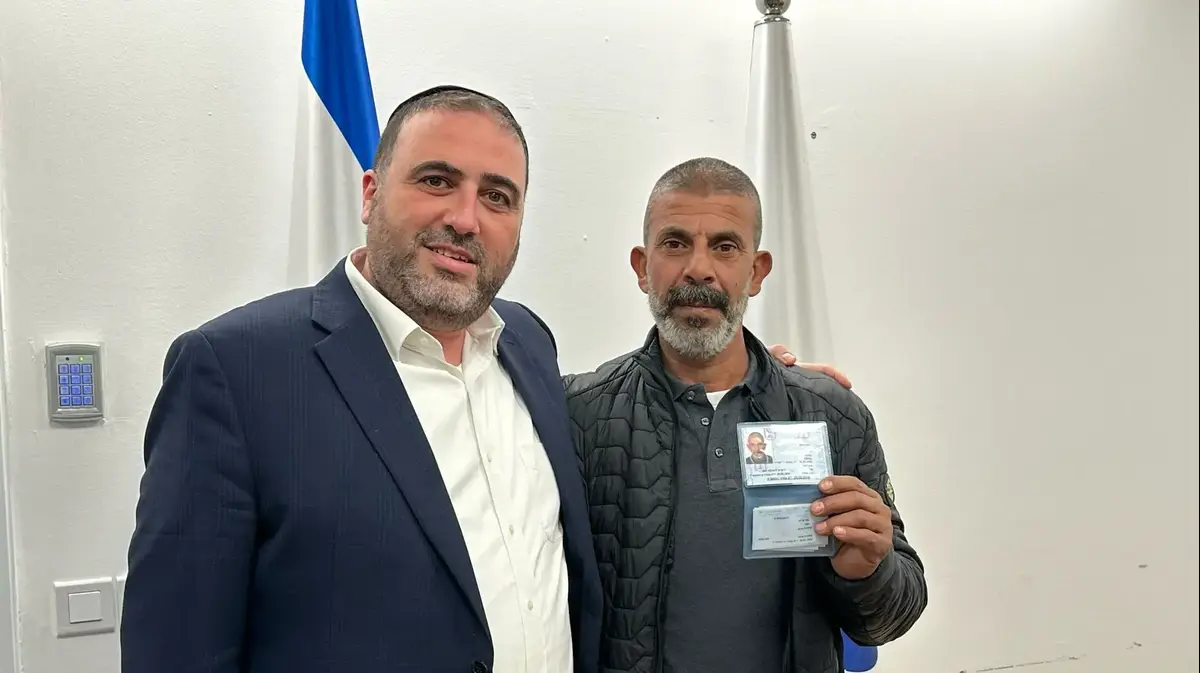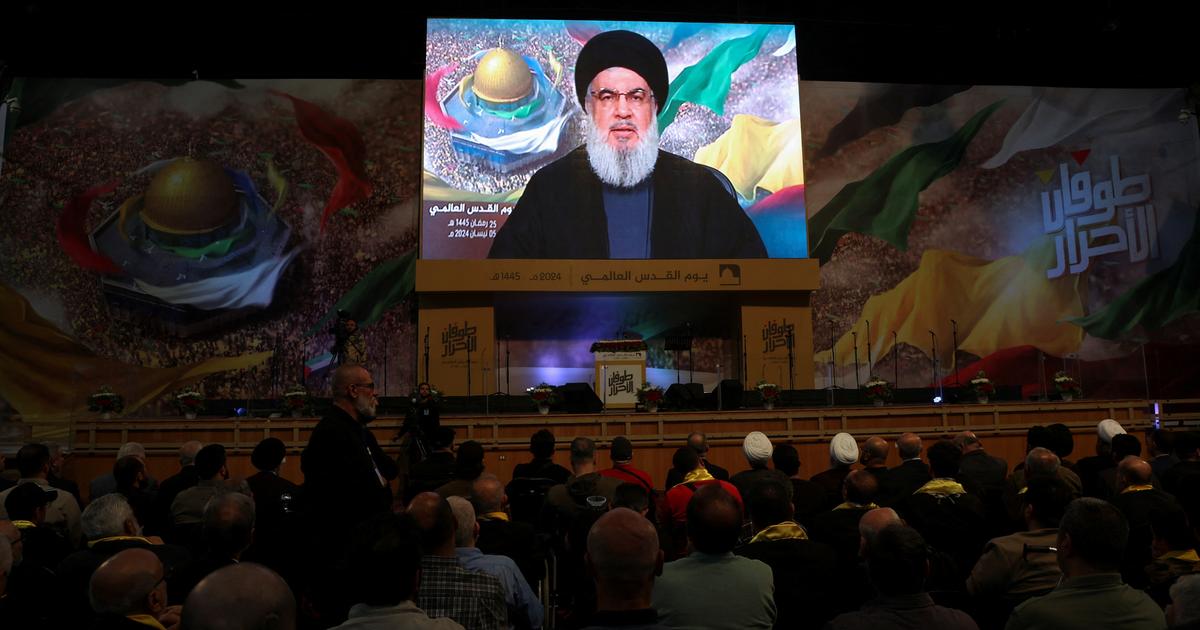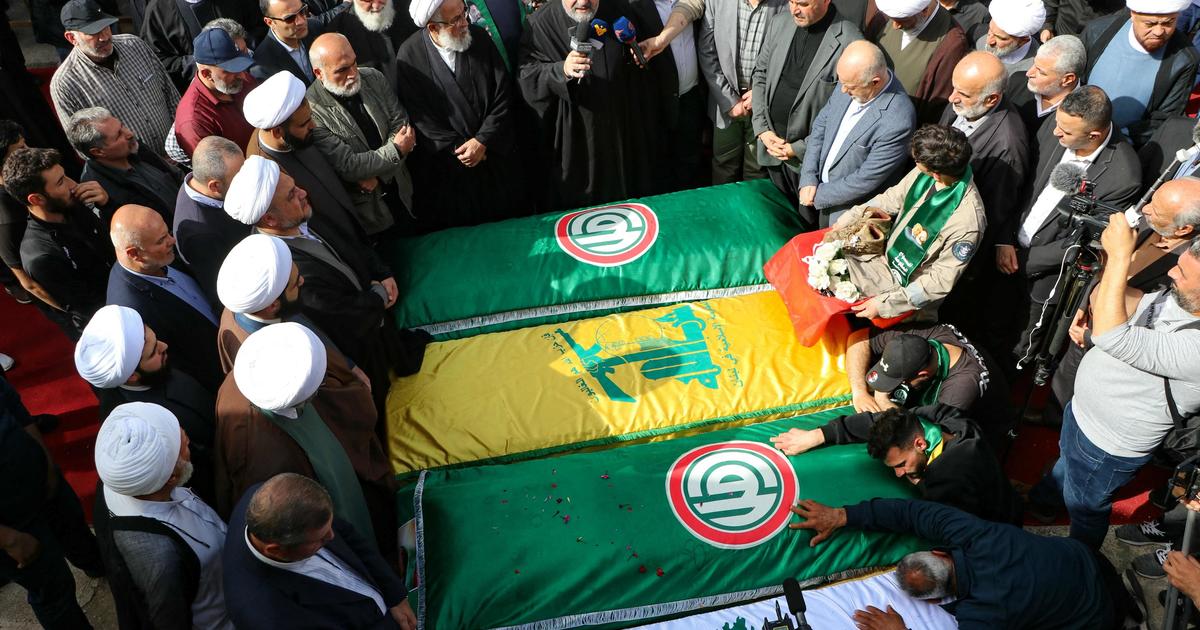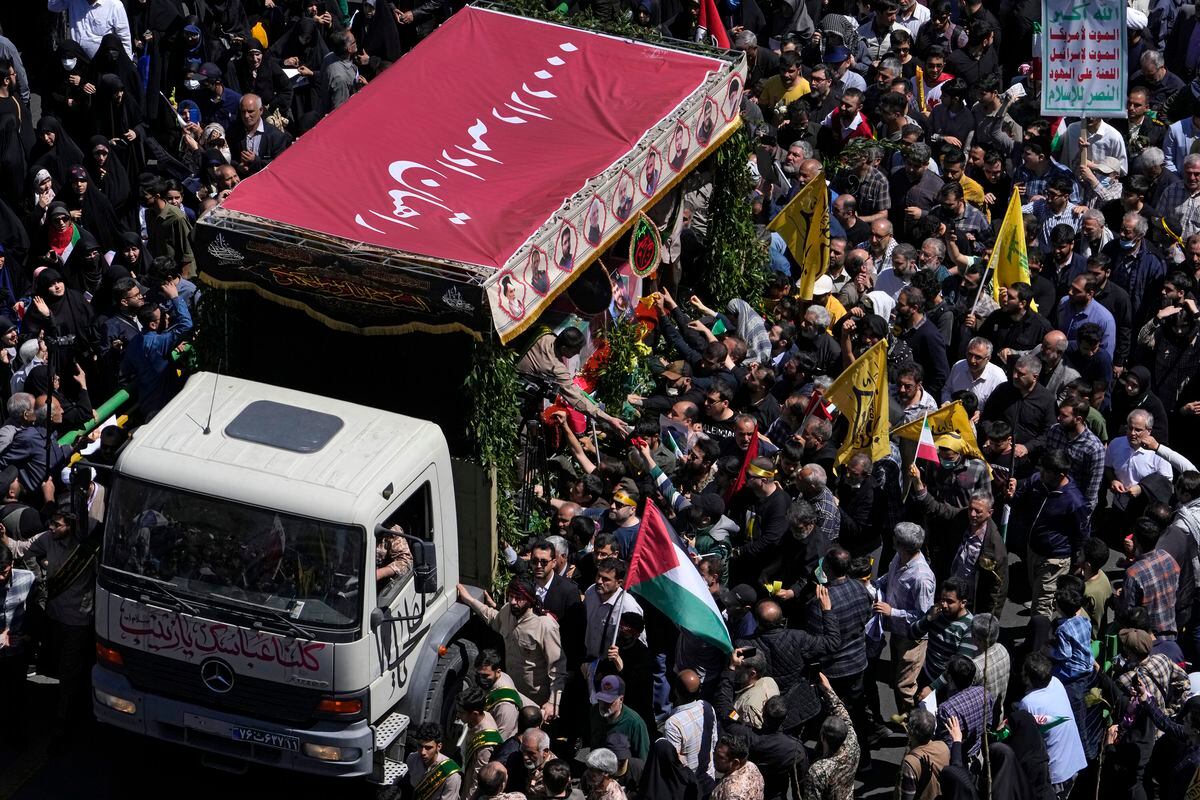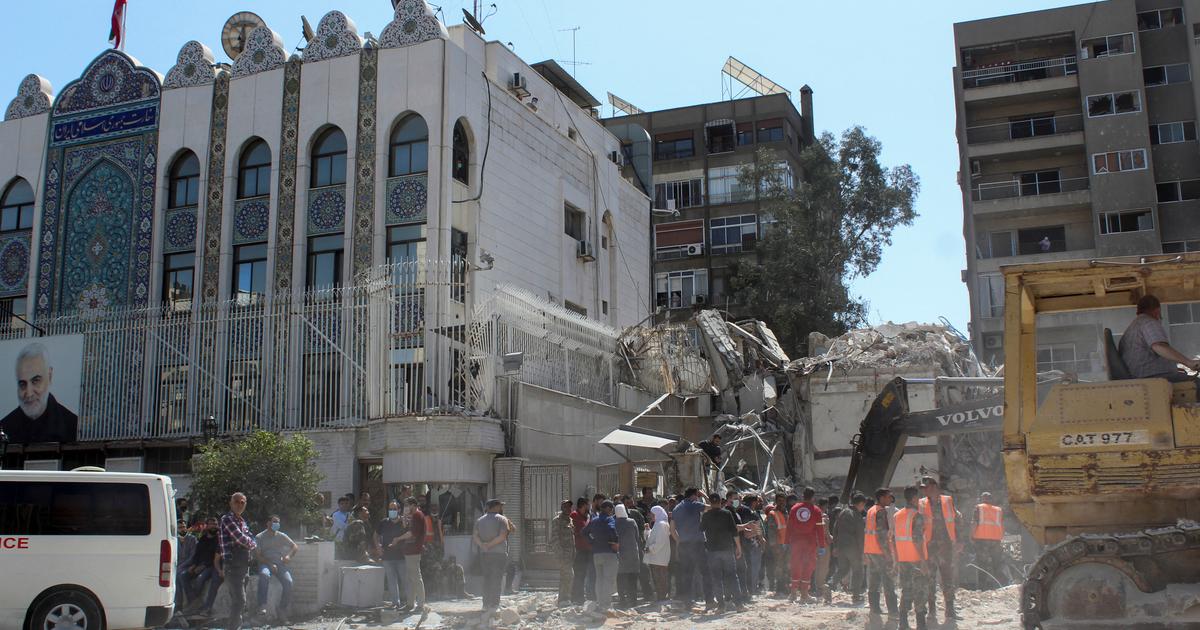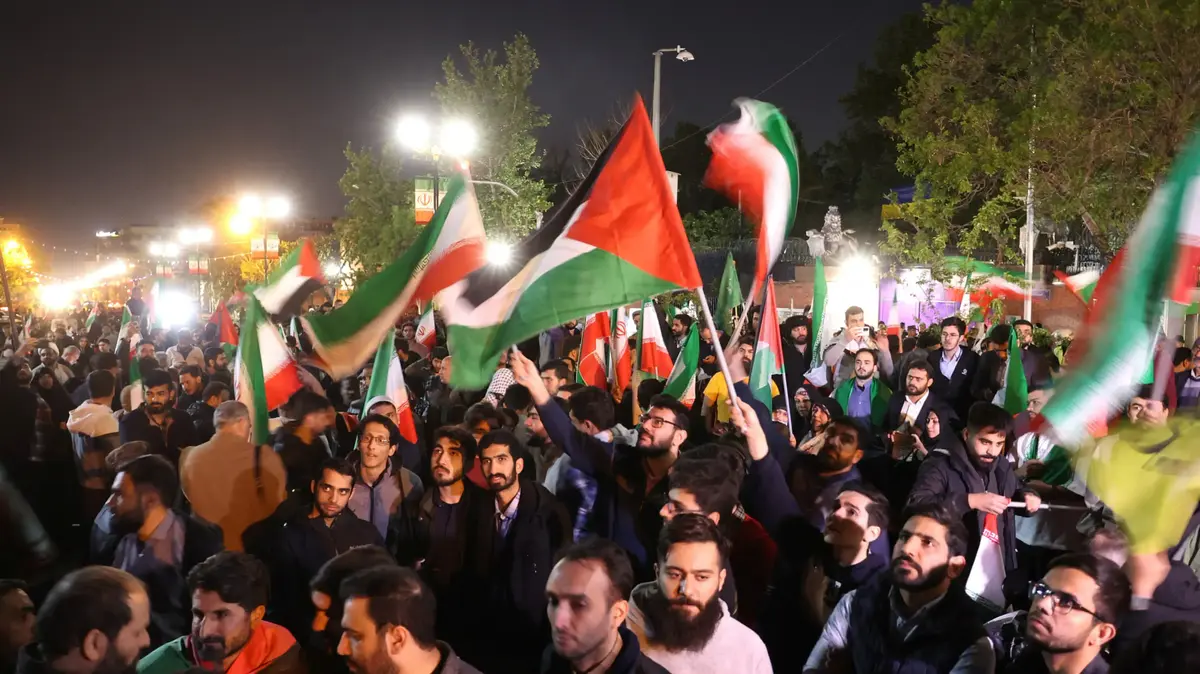Get Hamid off death row!
Landshuter fears for his Iranian friend
Created: 12/27/2022 11:43 am
By: Wolfgang Hauskrecht
Dominik Metzger from Landshut is only 27 but has already traveled the world.
He was also in Iran.
His host: the doctor Hamid Ghareh-Hassanlou.
The 53-year-old Iranian is now on death row.
Munich – It should be a cozy World Cup evening.
It's Saturday December 10th.
France meets England in the quarterfinals, Dominik Metzger has been invited to a flat share party.
"I was really looking forward to it," says the 27-year-old.
Then the phone rings.
It's his friend Luca's turn.
He says he found a post on the Internet about a doctor who had been sentenced to death in Iran.
Not just any doctor, but someone they both know well.
Hamid Ghareh-Hassanlou from Karaj, a city of two million near Tehran.
Dominik turns on the computer and sees the photo.
"It was immediately clear that it was Hamid," he says.
"At first everything around us stood still."
Death sentence in Iran: doctor is said to have beaten a militiaman
Hamid Ghareh-Hassanlou is a radiologist.
As a doctor, he belongs to the upper class in Iran.
The 53-year-old is married and has two children, a daughter and a son.
Dominik Metzger describes him as educated, cordial and helpful.
The doctor organizes aid projects across the country for people who are not doing as well as he is.
The Germans and the Iranians also get to know each other through such projects.
Dominik and Luca collect donations via their website "Travel for Smiles".
After their studies, in October 2018 they set off in their VW bus on a tour from Dominik's hometown of Landshut to Calcutta.
To get to know the world.
And to help people they meet on their journey.
They distribute food to the homeless, toys to poor children, and finance a solar thermal system for a children's home in Nepal.
Hamid Ghareh-Hassanlou and Landshuter Dominik Metzger (right) on a hike.
© Butcher
In Greece, they buy a wood-burning stove for an old couple without electricity or gas – and their attention is drawn to the charitable doctor in Iran.
You make contact.
Hamid invites them and has them picked up at the Turkish border in December.
Dominik and Luca live with the Ghareh-Hassanlous for three weeks.
"They welcomed us as if we were part of the family," reports Dominik.
Hamid shows them Tehran, the old royal palace, the bazaars.
They hike through the mountains early in the morning, and on the night of the winter solstice they celebrate the Yalda festival with the extended family.
They buy school supplies for Iranian children in an earthquake area, and in a poor rural community in southern Iran they finance the windows for a new school that Hamid is building there with other doctors.
The family of Hamid Ghareh Hassanlou.
© Butcher
Iran and politics are also discussed.
Young Germans have many questions.
"Hamid was always very level-headed and didn't allow himself to be carried away by talking disparagingly about the regime," says Dominik.
But the doctor always felt that life in Iran was not free.
also read
Weather phenomenon ensures spring temperatures in Bavaria - warm phase lasts for a long time
READ
"Today feast in McDonald's": Edeka customer shows deposit slip and is called "Bonze".
READ
Regensburg buys land full of toxic contaminated sites - residents should not find out about the pollution
READ
After the shock of being dismissed: Former employees open a new workshop – in the immediate vicinity
READ
"Great donation for a sad occasion": Animal shelter is happy about moving blessing
READ
Fancy a voyage of discovery?
My space
Just like on the streets.
“The younger generation is dissatisfied.
She wants to live differently,” says Dominik.
Many women only wore headscarves as an alibi – for the vice squad.
There was a big party scene underground in Tehran.
"But the spark was still missing."
The spark strikes on September 16, 2022 - and becomes a conflagration.
The Iranian Kurd Mahsa Amini violates the dress code, is arrested on the street and dies in police custody.
The police speak of a heart attack and stroke, eyewitnesses on social media say they were hit on the head during the arrest.
Either way.
The mass protests are cornering the regime.
The "Supreme Leader of the Islamic Revolution", Ayatollah Ali Khamenei, reacted with violence.
According to human rights organizations, at least 475 demonstrators have died to date, as have members of the Basij militia, a paramilitary auxiliary police force loyal to the regime.
Thousands of Iranians are arrested.
Nevertheless, the protests do not stop.
Hamid Ghareh-Hassanlou also demonstrated.
On November 4, he and his wife Farzaneh take part in a peaceful memorial march for a protester who was shot dead.
On the way home, they get into a violent clash between demonstrators and the Basij militia.
Hamid stops and gets out.
There are two versions of what happened next.
The clash killed two demonstrators - and a militiaman.
The regime accuses the doctor of being involved in his death.
He is said to have beaten him.
The other version is that the doctor rendered medical assistance.
"Anyone who knows Hamid," says Dominik, "rules out that there could be any truth to the allegation."
Dominik Metzger did his research as best he could.
Information from Iran is scarce, direct contact with the family is difficult.
He is now in contact with someone close to the family.
The two only spoke on the phone on Thursday.
It is certain, says Dominik, that Hamid and Farzaneh went home after the incident.
Days later, the police stormed the apartment at night.
"They beat and arrested both of them in front of the daughter."
According to Dominik's information, Hamid is being tortured.
He should confess, he doesn't.
With broken ribs and a collapsed lung, he had to undergo emergency surgery.
Farzaneh also withstood the torture "until she was threatened with picking up her son, torturing him and maybe killing him."
During the three-day trial, Hamid is sitting without legal counsel.
The death sentence is delivered to him in the clinic.
His wife Farzaneh is sentenced to 25 years in prison.
Hamid Ghareh-Hassanlou is not an isolated case.
How many death sentences there have been so far in the course of the protests is not certain.
Iran's judiciary speaks of eleven, as does Amnesty International.
The human rights organization lists another 15 demonstrators as being threatened with the death penalty.
The public service "Deutsche Welle" speaks of around 80 prisoners who are threatened with Hamid's fate.
As a source, she cites documents from the Fars News agency, which is close to the regime, and which were captured by Iranian hackers.
The accusations are the same: "War against God" and "depravity on earth".
That's enough for the revolutionary courts to issue a death sentence.
Dominik and Luca have not given up hope of seeing their friend alive again.
"The media attention to the case gives me the feeling that many are looking - and that the regime is perhaps preventing the execution." Not looking the other way is important, says Dominik Metzger.
“It helps local people to keep fighting for their freedom.
The longer the protest lasts, the more hopeful it makes me that there is no going back.”
In fact, the highest court in Iran is now having individual judgments reviewed.
As it became known on Wednesday on
Misan Online
, the judicial authority's website, the case of Hamid Ghareh-Hassanlou is said to be among them.
The death sentence is not yet final, it says on the justice portal, the verdict is not final.



